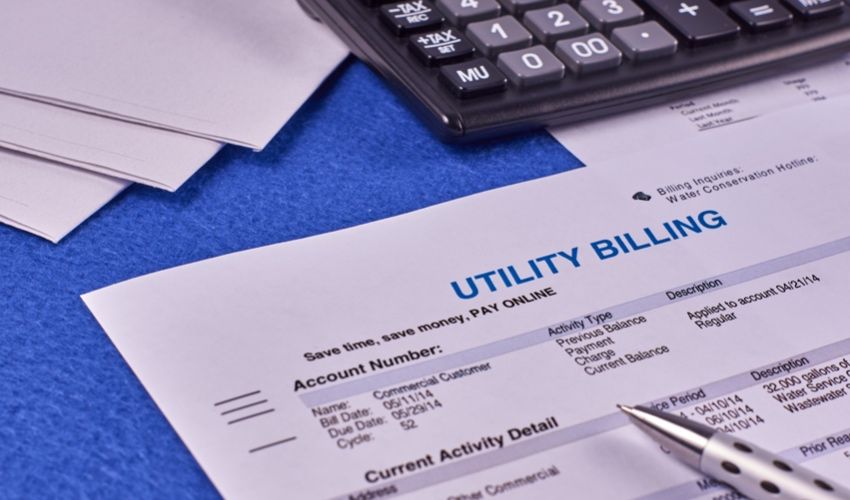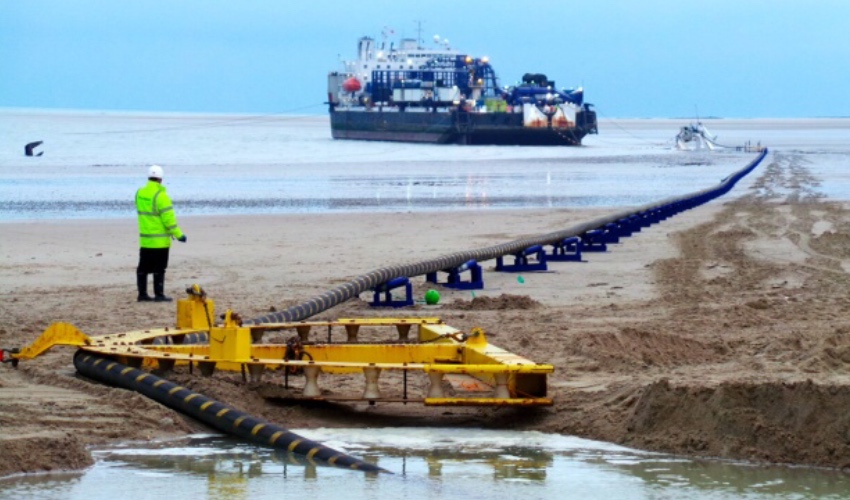


The cost of electricity should not rise above the further 5% increase already scheduled for 1 January, the head of the JEC has said, at least until the end of next year.
In contrast to significant price increases expected in the UK in the coming months, prompted by Russia’s invasion of Ukraine, Jersey will avoid the expected hike because Jersey Electricity has “hedged” the price as part of its contract with French provider EDF.
Jersey Electricity signed a ten-year hedging deal with EDF worth 1 billion euros in 2011, which lasts till the end of next year.
It means that prices should be relatively stable for Jersey customers, although the second of two 5% increases will come on next year. The first was made last month.
The practical effect of the two 5% rises is that, from next year, islanders will be paying around £2 per week extra than they were before. The average domestic bill of £1,100 a year will have gone up by around £104.
This, however, is significantly less than energy prices in the UK, where experts expect the energy price cap to rise from £1,971 to around £3,500 a year, subject to Government intervention.
The cap is expected to increase in October and January next year.

Pictured: Jersey Electricity CEO Chris Ambler: "The energy markets are in a complete state of turmoil".
Chris Ambler, the CEO of Jersey Electricity, said that the deal with EDF allowed JE to plan exactly how much electricity it needed and buy it at an agreed price.
He said: “The energy markets are in a complete state of turmoil, globally and particularly in Europe. That is, unfortunately, going to be inflicting enormous pain in the UK and other European countries this winter.
“It is largely off the back of the invasion of Ukraine; that has put in place severe restrictions on access to the supply of energy, particularly oil and gas, and it is a supply and demand driven market.
“Although Jersey Electricity doesn’t buy oil and gas, our markets are impacted. If we were to buy power that we needed for next year now, we’d be looking at paying around 8-9 times the prices that we have hedged at for 2023.
“That’s because our contract is linked to wholesale markets, and those are impacted by these other factors. The high volatile prices in the wholesale market have led to these extreme retail price increases in Europe and the UK.”
Mr Ambler said that UK electricity prices were currently almost double those of Jersey and were forecast to go up by another 50-60% from 1 October and another 20% from 1 January next year.
“There is speculation that energy bills might go up to £5,000 per customer by April next year and we could be a situation where UK prices are three times those of Jersey’s by the beginning of 2023,” he said.
By contrast, he said that Jersey Electricity was “in a good place” and able to shelter its customers from the high and volatile prices.
“We are presently saving our customers and the Jersey economy £100m a year compared to what we would be paying in the UK,” he said. “That equates to £8-9m a month, and the level of protection will be even higher relative to the UK, as prices there go up further.”
JE’s long-term contract with EDF, which runs until the end of 2026, means that almost all electricity comes to Jersey via undersea cables, two-thirds from nuclear power and one-third generated by the turbines of the Rance barrage.
“Our contract has a framework which allows us hedge forward a little and often, which has allowed us to avoid the highs that we’re seeing at the moment.
“The other factor that drives to low prices is that we have more scale being driven through the network. For example, Jersey Electricity sells roughly twice as much power per household as they do in the UK.
“We have a lot of fixed costs in our business, so we are driving scale through the business by offering new products and services, to encourage people to switch from oil and gas to keep volume through the network and customer costs low.

Pictured: Jersey imports the vast majority of its electricity from France.
“That doesn’t mean that we want people to use more energy; on the contrary, we actually want to people to consume less energy, which is why we’ve launched our My JE app, so that islanders understand where and how they are consuming electricity and to use our products efficiently.
“We have also invested in infrastructure to connect to the French system and the network is relatively efficient. We are an integrated utility, and we are able to operate our network quite efficiently.
“It is a combination of all of these but particularly our contractual position and the strength of our hedge book. That is, in the main, how we are able to shelter our consumers from these volatile prices in Europe.”
But what happens when the current contract with EDF runs out at the end of next year? Could we see significant increases then?
Mr Ambler said: “We are fairly well hedged over the next 18 months, and there are no plans to raise prices beyond the 5% in January.
“At the end of 2023, things will depend on a range of factors, including if the market stays high for a sustained period, but what I can say is, with a reasonable degree of confidence, is that we don’t expect to have anything like the kind of electricity price rises that we are seeing in the UK at the moment.”
Comments
Comments on this story express the views of the commentator only, not Bailiwick Publishing. We are unable to guarantee the accuracy of any of those comments.